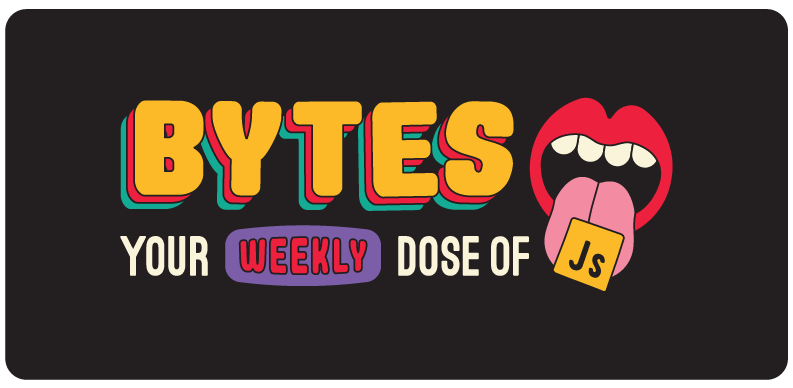Our 2024 Predictions 🎉

Happy New Year, ya filthy animals.
We’ve got lots of fool-proof predictions for you, the Clint Eastwood of RSC, and a disturbing AI breakthrough you might have missed.
Welcome to #250.

The Main Thing

When it's 2024 but you can't stop thinking about jQuery 4.0
2024 predictions that you can take to the bank
-
Bun achieves their goal of becoming the default runtime for the frontend. They still have some hurdles to jump over, but if they can succeed in providing a drop-in replacement for Node that instantly improves your app’s performance by 10x, it’ll be a no-brainer choice for most developers. Last September’s v1.0 release was a major step towards Windows support and general stability, and we’re betting that Bun starts becoming the default choice this year.
-
More than three of your favorite OSS/devtool startups will die. We’re not naming names, but if they’ve been around for 2+ years and aren’t profitably growing revenue, they’re in the danger zone. Though some may stick around a little longer by becoming a zombie startup where the founder fires most of the team and lives the VC growth company as a solo indie hacker dream – it’s not a great outcome for anyone.
-
AI will replace no-code/low-code tools. It turns out that AI is a lot better and faster at building analytics dashboards than Jim from marketing. Tools like Basedash already use AI to build you a full suite of custom internal tools, and others will emerge to replace the drag-and-drop builders for creating sites that don’t depend heavily on business logic.
-
Netlify gets acquired by GoDaddy. With multiple rounds of layoffs, 2023 clearly wasn’t the best year for Netlify. But sometimes the best way to rebound is to find yourself a new
sugar daddyGoDaddy. After retiring the Media Temple brand a few months ago, it feels like GoDaddy could be back in the acquisition market for a platform like Netlify. -
Everyone will actually figure out how to build apps with RSCs – without needing to scour random Twitter threads. It took a few years longer than expected, but that’s the status quo in the React ecosystem And speaking of things taking years longer than expected…
-
React forget will not ship. We first wrote about React Forget, React’s experimental memoization compiler, in issue #78 of Bytes. Though we’ve heard rumors that they’re already using it at Meta, it’s a hard problem to solve and we remain doubtful it’ll actually ship in 2024. The key to happiness is low expectations, after all.
-
No one will figure out what “Local First” actually means. Is it about optimistic updates? Data sovereignty? A new server/client paradigm? Network agnostic data stores? All of those things? We’re still not totally sure, but we’ll keep trying in 2024.
-
2024 is the year of
Linux on the Desktopdata on the edge. In what may be perceived as a contradiction of prediction #7 (again, we truly don’t know), lead by tech like Turso, LiteFs, and Cloudflare D1, 2024 will be the year we finally start moving our data closer to our users.
Bottom Line: I’m not sure if FanDuel and the other gambling sites let you bet on annual JavaScript predictions yet, but if they do, you might want to go lock these in now. I can’t think of a better investment for 2024.

Our Friends
(With Benefits)

Your admin panel vs. the one Basedash made in 2 min 😭
Connect your DB to Basedash, get a full admin panel in 2 min
Remember the first “holy crap” moment you had with AI?
Well, Basedash is about to give you another one. It lets you connect any database you want, then it immediately generates a beautiful, customizable admin panel with every internal tool you’ll ever need – for free.
For example, it made this one for Dockhunt in two minutes after they connected their Supabase DB 🤯.
Here’s just a few of the tools it comes with:
-
Data views that let your team filter, sort, and edit production data all in one customizable dashboard.
-
Actions that let you easily connect your DB to external APIs (like GitHub or Slack), or internal APIs to trigger business logic.
-
Multiplayer data editor that gives you a spreadsheet-like experience for viewing and editing all your data, including images.
Connect your DB for free — and see what the AI can build for you in 2 min.

Cool Bits
-
Mayank wrote an article called React Server Components: the Good, the Bad, and the Ugly. I’ve read it twice, and I’m still not sure if Next.js is supposed to be Clint Eastwood or the guy who plays Tuco.
-
Colin Campbell wrote about Concurrent React, External Stores, and Tearing.
-
Check out your 2023 Year in code. Created by the Graphite team, it gives you a personalized Spotify Wrapped-style video for all your GitHub stats. I just learned that I’m in the top 1% of developers who use
!important. Checks out. [sponsored] -
date-fns v3 was just released and is now 100% TypeScript and comes with ESM support for Node. It’s also up to 70 million downloads a month now.
-
Chris Rybicki wrote about Why JavaScript promises aren’t technically monads, which means I owe my stepmom an apology for a long fight we got into on Christmas morning.
-
jQuery 4.0 is coming soon to a theater near you.
-
Ben Visness wrote an article called I made JSX for Lua (because I hate static sites). Cover your ears, Netlify, he doesn’t mean it.
-
V8 introduced a fast, new optimizing compiler called Maglev.
-
Glauber Costa dared to ask, Is NoSQL dead? Regardless of the answer, it’s usually not a great sign when people start writing these types of articles about you.
-
Simon Willison wrote about Stuff we figured out about AI in 2023. I’m a little surprised that people aren’t more worried about the part where AI “acquired a taste for human flesh,” but I guess we’re all busy.